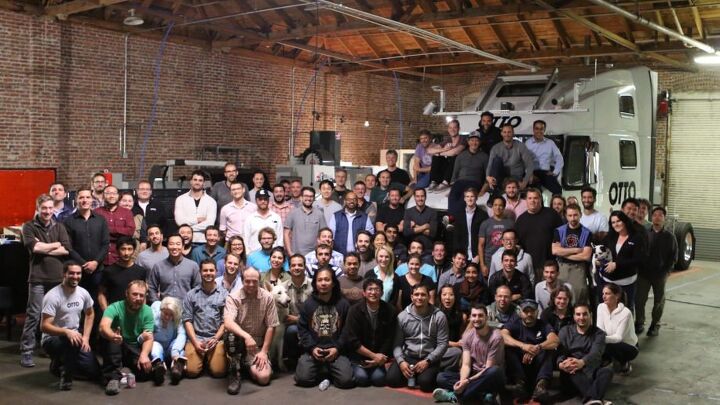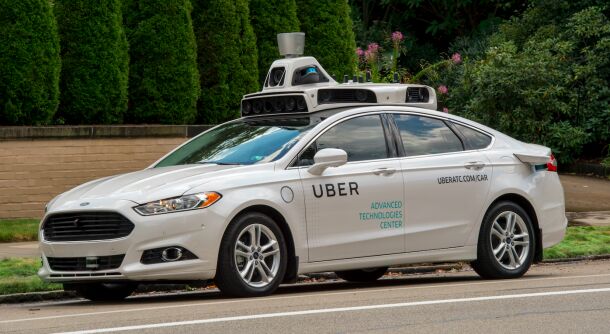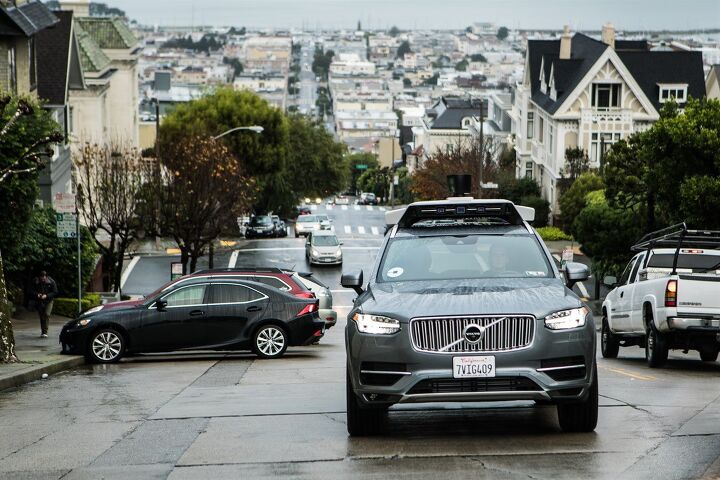#AnthonyLevandowski
Former Uber Self-driving Head Declares Bankruptcy
The former leader of Uber Technologies’ self-driving unit, Anthony Levandowski, filed for Chapter 11 bankruptcy on Wednesday, and it looks to have something to do with the $179 million he’s legally obliged to pay Google. A San Francisco County court decreed the same day that Anthony needs to pay out in order to settle his contract dispute.
In December, it was ruled that Levandowski and Lior Ron violated their agreement with Google when they left the company to start Otto — a rival autonomous vehicle company focused primarily on commercial trucking. Uber purchased Otto in 2017 but Google’s self-driving arm (which evolved into Waymo) claimed Levandowski violated intellectual property laws by stealing trade secrets it owned for Uber. While Ron decided to pay $9.7 million to settle with the tech firm, Anthony held out. He also faces a federal indictment over the alleged intellectual property violation.
Despite Being Under Criminal Investigation, Uber Got a Great Deal on Otto
Uber Technologies Inc. received quite a bit of publicity when it purchased autonomous semi truck developer Otto in 2016. Still, it saw even more headlines when it became embroiled in a trade secrets lawsuit with Waymo. That case involved files obtained by Anthony Levandowski, former Google engineer and co-founder of the self-driving truck company, who was accused of selling confidential data to Uber (along with his business).
The bad news is that Uber now the subject of a federal investigation and knee-deep in the aforementioned litigation. But the good news is that it appears to have scored a really sweet deal on Otto.
Uber's Contract With Notorious Employee Apparently Included Bad Behavior Clause
It would seem Waymo’s case against Uber is progressing at the latter’s expense. Anthony Levandowski, the former Uber employee at the center of the intellectual property theft, was apparently covered in writing for any legal action taken against for things like… fraud and stealing trade secrets.
The clause, which is literally outlined as “Pre-Signing Bad Acts” in the contract, was part of closed documents U.S. District Judge William Alsup previously assumed would be invaluable in progressing the case. Alphabet, which owns Waymo, accused Uber of being complicit in Levandowski’s alleged theft – suggesting the ride-sharing rival intentionally hired him in the hopes he would bring inside information acquired during his tenure at Google. It was a notion Alsup also seemed more than willing to entertain.
“It remains entirely possible that Uber knowingly left Levandowski free to keep that treasure trove of files as handy as he wished [provided he keep the data on his own personal devices], and that Uber willfully refused to tell Levandowski to return the treasure trove to its rightful owner,” the judge said back in May.
Judge Refers Uber Trade Theft Allegations to Criminal Prosecutors as Case Goes Public
Waymo’s lawsuit against Uber Technologies’ alleged theft and usage of autonomous trade secrets is going to trial.
Judge William Alsup ruled Uber could not force the case into private arbitration and is referring the matter to the United States Attorney for a very public investigation.
This is everything the ride-hailing company didn’t want.
Uber Demotes Employee at the Core of Self-Driving Technology Lawsuit
Anthony Levandowski, the man at the nucleus of Alphabet Inc.’s intellectual property lawsuit against Uber Technologies, has abandoned his position as the team lead for the firm’s autonomous vehicle development.
Uber explained that Levandowski’s new role is less critical and has no authority over the company’s LIDAR technology, which he is accused of stealing from Alphabet’s Waymo when it was still part of Google. Since the lawsuit, Uber has done everything possible to distance itself from the man without outright firing him.
Volvo Sticks With Uber Despite Autonomous Crash and Stolen Tech Litigation
After Friday’s high-speed crash, it’s back to business as usual for Uber’s autonomous programs. Last week, one of the company’s self-driving Volvos was struck by a flesh-piloted crossover — causing Uber to temporarily ground its entire test fleet. With the exception of the wrecked unit, all of those vehicles are now back in action as the business attempts to get on with R&D while simultaneously moving its legal dispute with Waymo out of the public eye.
Meanwhile, Volvo’s 300-million-dollar alliance with the ride-sharing company remains unperturbed. In the crash’s aftermath, Volvo maintained that it would continue to support Uber and preserve the partnership.





















Recent Comments